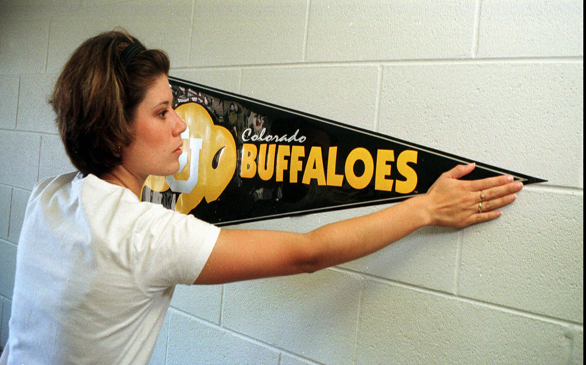Whether one refers to it as the “Pacific Athletic Conference” or the “Pacific 10,” the abbreviated monikers of “PAC” or “Pac” that are associated with the largest collegiate athletic conference on the West Coast is clearly spawned from a majority of schools associated with states bordering the Pacific Ocean. OK, so Arizona is not on the Pacific Coast, but the landlocked state adjacent to California is usually given a pass when it comes to sports teams hailing from there. I can totally get schools like Arizona and Arizona State belonging to the Pac-10, just the same way the NBA’s Phoenix Suns or the NHL’s Phoenix Coyotes both are part of their respective league’s Pacific Division.
But now come rumors of the Pac-10 considering expansion to invite the University of Colorado and the University of Utah to join in on the action. That begs the question: If Colorado and Utah do in fact join the party, should the conference just lazily be changed to Pac-12? Or should the conference be renamed entirely?
Fun as it may be to come up with some cool names for the new conference – Big Western Dozen, anyone? – there is actually another thing to consider in all this: Why should the Pac-10 expand in the first place?
I can tell you what I think is going on – there is a mutiny in the making. The nation’s major conferences are scheming and plotting, following the principle of “the sum of the parts is greater than the whole.” There is too much money to be made for the conferences not to act, especially if the conferences believe they are organized enough to host their own championship tournaments.
Specifically, there are several conferences looking to expand – including the Big East and the Atlantic Coast Conference. Why? The answer is in college football. There is just too much money to be made for independent major conferences to sit back and watch the NCAA ride the coattails of workhorse schools and conferences.
To put it simpler, conferences are cutting out the middleman to earn a greater piece of the pie. Many conferences already host a postseason tournament of some sort. Imagine if they collectively came together and made their own grand tournaments, especially in basketball and football, to rival that of the NCAA. It would be the opposite of the National Invitational Tournament.
Let us look at how much money Colorado and Utah could bring to the Pac-10. According to the Orlando Sentinel, the Buffaloes drew in about $52.6 million in revenues during the 2007-08 campaign, while Utah earned about $27 million. While such figures would rank eighth and 12th, respectively, in the new Pac-12, the conference is not exactly going to turn away from nearly $80 million in revenues.
Factor in that both schools also earn heavy paydays from their postseason bowl games, and let us just say the Pac-10 is banking on the idea that Colorado and Utah are the only two schools on this side of Austin, Texas, who could help boost the profile of the conference – potentially leading to greater revenues in the long run.
And if the conferences feel they can earn more money by banding together and organizing against the NCAA, then why have the entity around at all? That would be too many thumbs in the pie, right?
Think of it. There are probably many within the likes of the SEC, ACC and Big East who believe the NCAA, as an entity, is hoarding too much money from the Bowl Championship Series and March Madness and not sharing enough of that wealth with those very people who are responsible for such insane amounts of revenues in the first place.
If the conferences could get it right, they could divvy up the money in such a way that they are earning more by leaving the NCAA than by maintaining the status quo. So long, BCS. Hello, college football tournament!
Mark my words: Should Colorado and Utah join the PAC-10, it will be only a matter of time before the NCAA, as an entity, is doomed.
Sports: The Sports Wanderer
Welcome to the Pacific-12
By Parimal M. Rohit

Colorado Buffaloes fans could be joining the Pac-10 party.
(Credit: Mark Reis/Colorado Springs Gazette/KRT)
Article posted on 5/3/2010
This article has been viewed 45231 times.











